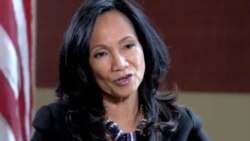As Asia battles the COVID-19 pandemic, USAID continues to provide essential health and other types of assistance in the region, including interventions to help curb the spread of COVID-19 disease within the region.
“Over the last half century, the United States has been the biggest contributor of global health security,” said USAID’s Assistant Administrator for Asia Gloria Steele.“We have built the foundation upon which the global health system is based, contributing to more than 140 billion in global health assistance in the 21st century.”
Today’s world of increasing interconnectivity and mobility accelerates the shared global risk to our health. An infectious disease, like COVID-19, can be transported from an isolated village to major cities on all continents in less than 36 hours. Public health emergencies can have devastating effects on local, regional, and global economies. They disrupt markets, destabilize political structures, threaten business operations, and endanger workers’ health. This is why the United States invests in global health security.
“Since the start of the pandemic, USAID and the State Department have committed more than one billion dollars globally. And in Asia alone, that hasamounted to one hundred eighty two million dollars to about 30 countries in the region.”
Long-term investment in the healthcare systems of these countries has allowed for rapid mobilization of response to COVID-19:
“We have generally been investing in the prevention and treatment of infectious diseases, investing in the improvement of maternal health and child health, and, of course, investing in global health security. COVID-19 assistance has built upon the years of assistance the United States has provided the world over to combat infectious diseases.”
“In Indonesia, for example, in just a few weeks we were able to mobilize and train pharmacists, over 70,000 of them, to be able to provide clients advice as well as referrals for hospitals when necessary,” said Assistant Administrator Steele:
“The same thing has happened in India, where we used our maternal and child health platform to advise mothers about prevention of COVID-19 among their children and then share good health practices in maternal and child health.”
“We invest significantly in health and education. This allows the greatest number of people to participate in the growth process,” said Assistant Administrator Steele.“When the health systems are not protected, they affect everything else, not just the human ability to participate, but the growth of the economy in the process. And so that is our strategy in the region”.














